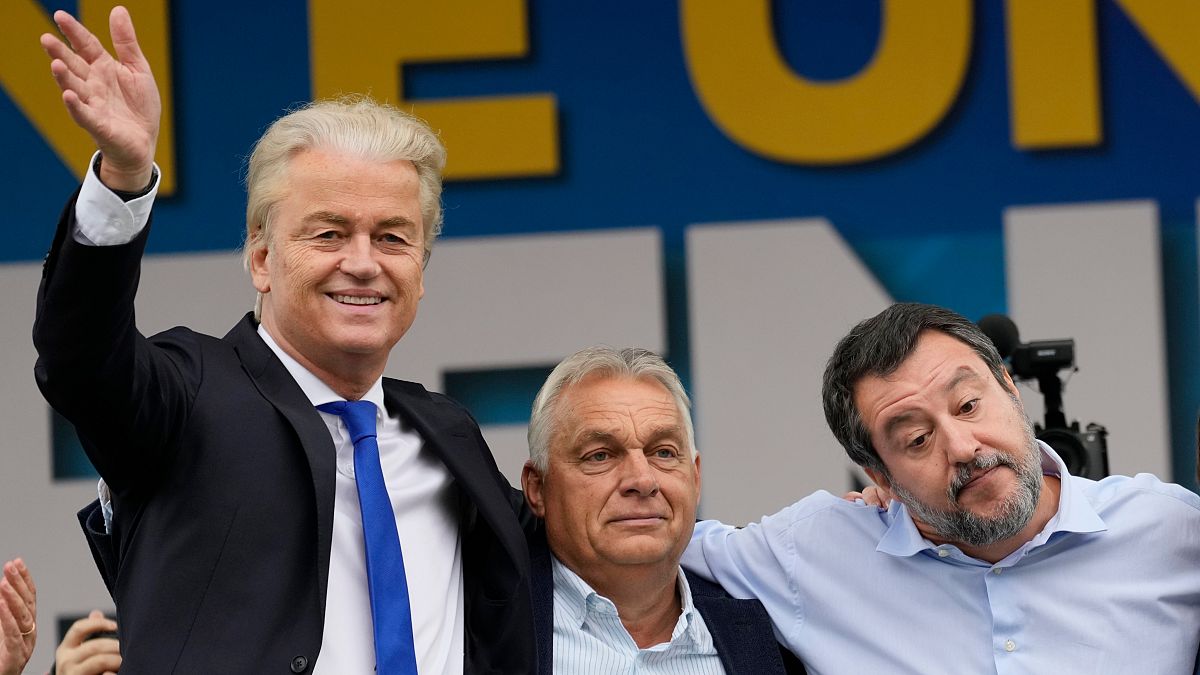The European Parliament is home to three right-wing groups, namely Patriots for Europe, Europe of Sovereign Nations, and European Conservatives and Reformists. While all these groups share nationalist, sovereigntist, conservative, and Eurosceptic ideologies, they differ on issues related to Russia, Ukraine, and their relationship with the European Union. Despite being classified as “far-right,” most members of these groups reject this label and prefer terms like extreme right, hard right, radical right, national conservative, or populist to describe their ideologies. The distinctions between these groups have led to confusion in public debate, prompting experts to provide clarity on how to categorize them.
Europe of Sovereign Nations is considered the most extreme far-right group in the European Parliament, comprising parties that exhibit authoritarian traits and do not always respect parliamentary democracy. The group is also described as illiberal, as it struggles to accept the independence of the judiciary, the rule of law, and individual freedoms. Additionally, Europe of Sovereign Nations is labeled as nativist due to its anti-immigration stance and differentiation between immigrants and native-born citizens. The presence of parties like Alternative for Germany and the Polish Confederation within this group further solidifies its extremist reputation.
Patriots for Europe, with 86 MEPs, is the third largest force in the European Parliament and represents a mix of right-wing parties from countries like France, Hungary, Italy, Spain, and Austria. This group is characterized by populist ideologies that emphasize a divide between a corrupt elite and the homogeneous “people.” Populism, while often associated with demagogy, can manifest in both left- and right-wing movements, with Patriots for Europe falling into the latter category. Members of this group, alongside Europe of Sovereign Nations, are known for their populist rhetoric that resonates with a significant portion of the European electorate.
On the other hand, the European Conservatives and Reformists (ECR) group, comprising 78 MEPs, is often labeled as radical right rather than far-right or extreme. Parties within this group, such as Brothers of Italy and Law and Justice from Italy and Poland respectively, combine nativism and authoritarianism in their ideologies. The adherence to authority as a supreme value distinguishes radical right parties from more traditional nationalist and conservative groups within the European Parliament. While not all ECR parties are considered radical right-wing, some exhibit characteristics that align with this classification, emphasizing the need for a nuanced understanding of right-wing political movements in Europe.
In conclusion, the European Parliament accommodates a diverse range of right-wing groups, each with its unique set of ideologies and values. While the labels of far-right, extreme right, populist, or radical right are often used interchangeably, it is essential to understand the distinctions between these groups to grasp the nuances of their political agendas. By consulting experts and political scientists, we can gain a deeper insight into the classification of these groups and their impact on European politics. As the lines between various right-wing movements continue to blur, it is crucial to remain informed and discerning in our analysis of their beliefs and actions within the European political landscape.










